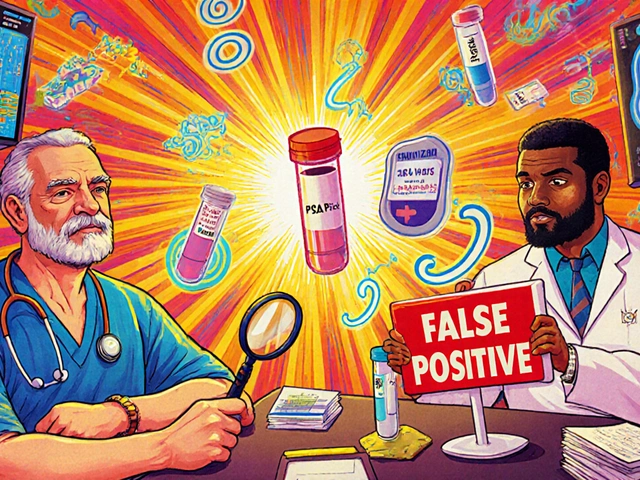Alzheimer's Patients: Real‑World Tips and Medicine Guides
If you or someone you love has been diagnosed with Alzheimer's, the first thing most of us want is a clear game plan. You don’t need a medical textbook—just simple steps that actually work in everyday life.
What to Expect Early On
Memory slips start small: forgetting a name, misplacing keys, or repeating stories. Those moments are frustrating but they also signal when it’s time to set up some safety nets. A daily checklist for meds, a labeled pill organizer, and a phone reminder can stop missed doses before they become a habit.
Another common change is mood swings. The brain chemistry behind Alzheimer's makes anxiety and irritability pop up more often. Simple breathing exercises or short walks can calm the nervous system without needing a prescription.
Medication Basics You Should Know
There are three main drug families most doctors prescribe: cholinesterase inhibitors (like Donepezil), NMDA antagonists (Memantine) and, in later stages, combination therapy. These meds don’t cure the disease but they can slow cognitive decline by a few months to a couple of years.
When you order any of these online, make sure the pharmacy is licensed and asks for a valid prescription. Look for signs of legitimacy: clear contact info, a pharmacist’s name, and secure https connections. Avoid sites that promise “free” drugs without a doctor’s note—those are usually scams.
Cost can be a hurdle. Many insurers cover cholinesterase inhibitors, but if you’re paying out‑of‑pocket, compare prices on reputable pharmacy comparison tools. Some online pharmacies even offer discount cards for seniors.
Side effects vary. Donepezil might cause nausea or insomnia; Memantine can lead to dizziness. If a new symptom shows up after starting medication, call the prescribing doctor right away. Never stop a drug abruptly without medical guidance.
Daily Hacks for Caregivers
Keep a “what‑works” notebook. Jot down favorite meals, bedtime routines, and activities that trigger calmness. Over time you’ll see patterns—maybe music from the 70s lifts mood or a specific scent eases agitation.
Safety in the home matters. Install night lights in hallways, lock cabinets with dangerous chemicals, and remove loose rugs to prevent falls. A simple phone‑call list pinned on the fridge (doctor, local support group, emergency contacts) can save precious minutes during a crisis.
Don’t forget your own health. Caregiver burnout is real; schedule short breaks, even if it’s just 10 minutes of coffee while someone else watches the patient. Online forums for Alzheimer’s families can provide quick advice and emotional support without leaving home.
Where to Find Trusted Resources
The Alzheimer's Association website offers free printable care guides, legal checklists, and a toll‑free helpline. For medication pricing, sites like GoodRx or our own OnMen pharmacy comparison tool list current discounts in real time.
Lastly, stay updated on new treatments. Clinical trials for disease‑modifying therapies are rolling out faster than ever. Ask your neurologist if you qualify—participating can give access to cutting‑edge drugs before they hit the market.
Living with Alzheimer’s isn’t easy, but a mix of reliable meds, practical daily routines, and solid support networks makes the journey manageable. Keep this page bookmarked for quick reference; we’ll keep adding fresh tips as research evolves.
Donezepil and the Elderly: Special Considerations for Older Alzheimer's Patients
In my latest blog post, I delve into the topic of Donezepil, a common medication used to manage Alzheimer's in older patients. I discuss the unique considerations that need to be taken into account when prescribing this medication to the elderly. The post covers potential side effects, the importance of adjusting dosages for this age group, and the need for regular monitoring. I also touch on the role of caregivers and the importance of communication with healthcare providers. This is a must-read for anyone caring for an Alzheimer's patient on Donezepil.






